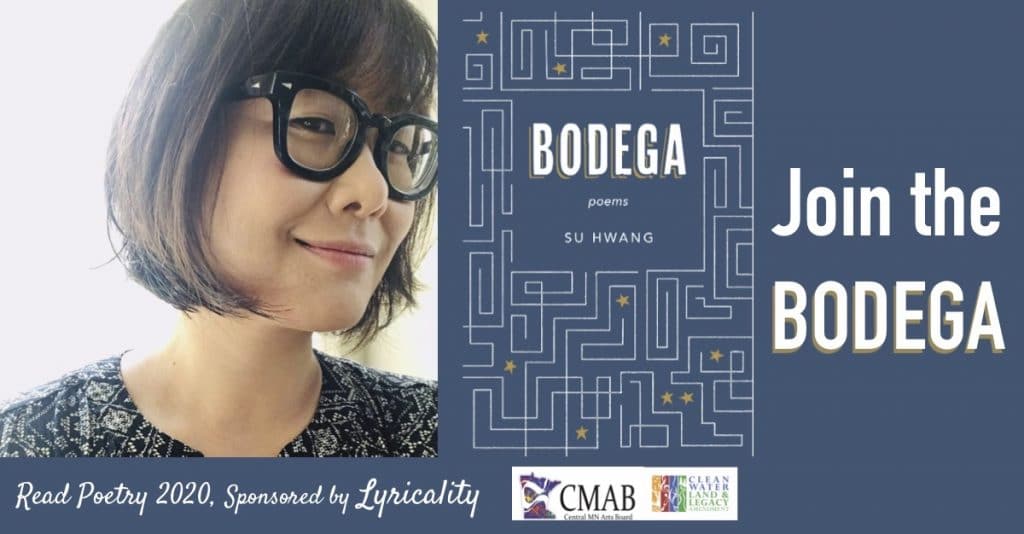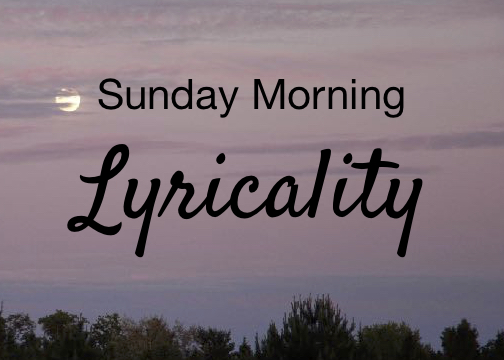Welcome to Sunday Morning Lyricality, featuring a weekly song or poem by a Minnesota writer, followed by a prompt to help you write your own poem.
September returns. Students return to school and their letters, while the Jewish High Holidays (literally translated, the “Days of Awe”) approach. In Bill Meissner’s poem, “Letter by Letter,” a kaleidoscope of ideas and feelings–learning, forsaken ambitions, disappointment, regret, the passing of time, and the sorrow of contrition–converge with a sprinkle of hope that things are, nevertheless, somehow all right. This is a poem that for me perfectly captures the paradoxical joy-grief of September, a season that poignantly reminds me that things pass away, thereby heightening my awareness that life is beautiful.
Tracy Rittmueller
Letter by Letter
Bill Meissner
That morning of my tenth birthday, I expected to unwrap
a new baseball glove, a remote-control race car, a telescope. Instead,
my father lowered an American Heritage Dictionary
into my surprised palms,
told me he’d give me a small allowance
if I’d learn the definitions from A to Z.
I felt the weight of the book, its embossed leather cover
holding in those 225,000 words.
Caught in the middle of Iowa,
I knew nothing of Aardvarks or Zzyvas.
So each night, instead of watching TV,
I leaned close to the gold-leafed pages,
studying definitions that often eluded
me, meteors that glowed a few seconds
in the dome of sky before they faded.
I can picture him now, after work at the used car lot,
his beige dress shirt creased like the lines in a county map.
He’d lean back on his La-Z-Boy in the den,
paging through the latest National Geographic,
marveling at the ancient mariners who navigated by the stars.
As a young man, he dreamed of jumping on a freighter
to ports in Anchorage, Buenos Aires, Caracas.
Instead, he got a steady job. Instead,
he wanted his son to learn the world,
letter by letter, and then
go there.
Months later, I gave up at F.
I even skimmed some of the blurred pages
just to get all the way to that failure,
then slid the dictionary into a mute dresser drawer.
Dad, I’m sorry. The universe was just too big for me
and I grew away from those words.
But I’m finding them now, years later, for this poem.
Here they are: each one
like the light from a small, distant
star, finally reaching the earth.
Writing Prompt based on “Letter by Letter” by Bill Meissner
We offer writing prompts based on featured poems for people who want to write something, who need a little help getting started. We don’t imply that you ought to write something. Many people enjoy reading or listening to poems without feeling compelled to write one. You might simply read this prompt as an exploration into what the featured poem is doing, and how its language works. This can deepen your acquaintance with poetry and lead to great pleasure in being a reader of poems.
How to Write a September Poem
The first question every poem implies is, “Will you enter this poem?” Like a host opening a door, a poem bids readers enter the interior world, to partake of a potluck feast. For this banquet, the poet supplies the poem; readers bring their individual-unique thoughts, feelings, memories, associations, and questions.
To write your own September poem, start with a blank page (lined or unlined, whichever you prefer) and divide it in two columns. Label the columns “I contemplate” and “I wonder.” Read Bill Meissner’s “Letter by Letter” again, line by line, beginning with the title. After each line, write a question in the “I wonder” and/or record a thought, feeling, memory, or association in the “I contemplate” column.
Three notes to perfectionists and over-achievers:
- Nobody is watching and nobody cares what you write, so don’t analyze or evaluate your responses; just write them.
- Don’t think of this as an assignment, and don’t be rigid about completing it. If you get to a line that elicits a full blown memory, or opens up a vein of something valuable, mine it. Let your pen flow and keep writing! A prompt is nothing more than a little spur to move you, so you can gallop freely on a wild ride into unexplored territory. To veer off course is not only acceptable, it’s the liberating intention of a prompt.
- You’ve already earned your A. When I was a writer in residence at schools, I subverted the inner judgey-instructor of perfectionist students (as well as the inner meany-critic of students who didn’t believe in themselves) by announcing that everyone who participated would get an A. So before you begin, mark the top of your page with a nose-thumbing A++ .
Use whatever you come up with to begin your draft. Write about a person you expected something from, who probably also expected something from you. Explore your story of mutual disappointment from two perspectives, your own, and the other person’s. Then write a short apology, with an explanation of why you were unable to meet that expectation.
Use the word “but,” to transition from the past to the present—what you are doing now with the wisdom you learned from that past experience. Conclude your poem with a simile (using the word “like”) to offer a bit of hope, or redemption.
You might borrow Bill Meissner’s structure, telling most of the story from your point of view, then indenting a stanza to consider what the other person might have been thinking or feeling, before coming back to your own story, and ending with some kind of apology with a hint of hope, forgiveness, or reconciliation.
*****
Author and teacher Bill Meissner has won numerous awards for his writing, including PEN/NEA Syndicated Fiction Awards and The Midwest Book Award. He is the author of three books of fiction and five books of poetry, most recently The Mapmaker’s Dream. He has taught creative writing at St. Cloud State University, and, as a visiting writer he frequently presents workshops at local elementary schools, high schools and colleges. He lives in St. Cloud with his wife Christine.
“Letter by Letter” from The Mapmaker’s Dream by Bill Meissner ©2019, published by Finishing Line Press. Appears with the permission of the author. (Buy Now)
*****
How to Build a Caring Community through Poetry
Would you like to connect with caring people and build community? Are you ready to invest in real-life, meaningful conversations with real people? Join the Bodega, (Lyricality’s Read Poetry 2020 Program) featuring Su Hwang’s award winning collection of poems, Bodega.

